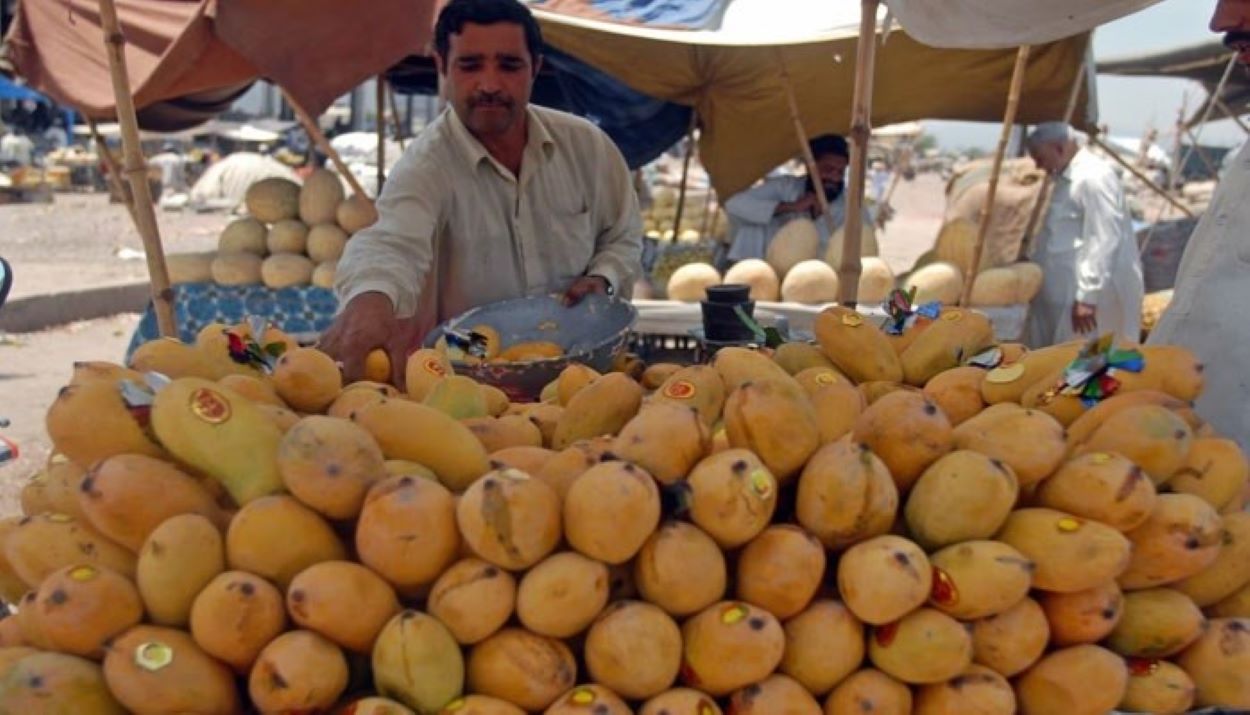Mangoes are typically a source of national pride and essential income. However, farmers blame climate change for parasites and extreme weather ruining much of this season’s crop.
“Buds didn’t flower on time; many buds just died. Those that started growing were infected with black hopper,” said Farmer Muhammad Yusuf. Yousuf has grown mangoes for half his life. Climate change has wreaked havoc in his village of Tando Allahyar, around 200 kilometres (124 miles) northeast of Karachi.
Pakistan is the world’s fourth-largest mango producer, with agriculture accounting for nearly a quarter of its GDP. In Tando Ghulam Ali, Arsalan, who manages a 900-acre mango orchard, noticed the damage as soon as the harvest started. “We have production losses of 15 to 20 per cent, and the picking has only just started, so this figure will surely increase,” said the 32-year-old.
Arsalan, who goes by one name, warned that exports will be significantly reduced. “The mangoes turn yellow on the outside but remain underripe or overripe inside,” he explained.
Ziaul Haq, a mango grower and exporter from Tando Ghulam Ali, said the unprecedented attacks by pests were a first in their history. “This has never happened before,” he told AFP. The proliferation of parasites has led to a surge in spending on pesticides. Several farmers in Sindh province and Punjab confirmed this increase. Chemicals are now used six to seven times per year, compared to just twice three years ago.
Farmers in Sindh have struggled since 2022 due to severe heatwaves and unprecedented flooding. Those in Punjab said declining crop yields date back several years. “Losses in Punjab reached 35 to 50 per cent and in Sindh, 15 to 20 per cent,” said Waheed Ahmed, head of the Pakistan Federation of Fruit and Vegetable Exporters Association (PFVA). Speaking to local media, he noted that Pakistan exported only 100,000 of the 125,000 tonnes of mangoes planned for export last year.
Pakistan’s 20 varieties of mangoes are second only to oranges as the most-produced fruit in the country. The income loss from a poor harvest could significantly impact the country’s negotiation of a loan with the International Monetary Fund (IMF).






